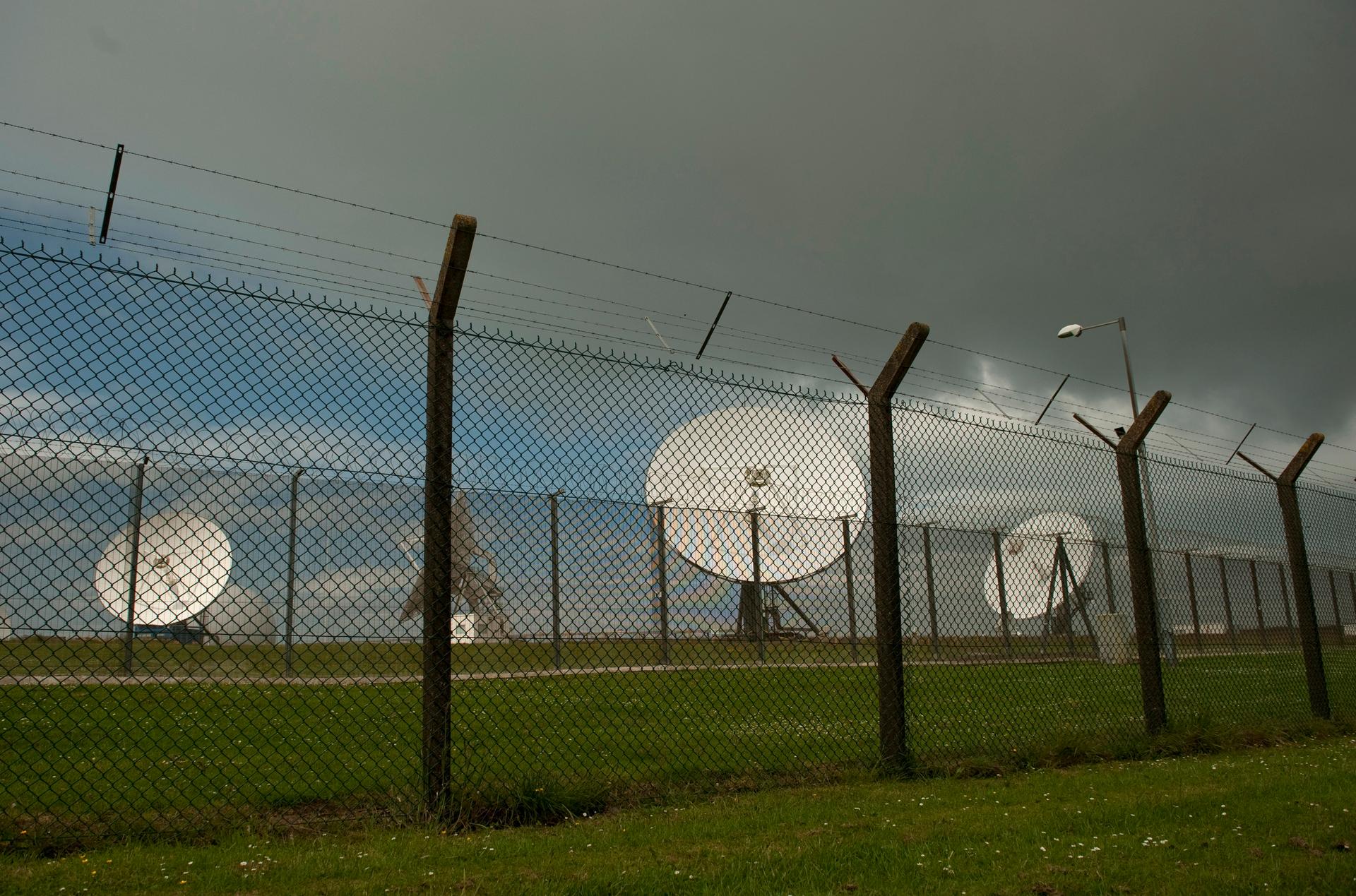Why the British shrug at government surveillance… It’s Bond. James Bond
Satellite dishes at Britain’s spy agency GCHQ, close to where trans-Atlantic fibre-optic cables come ashore. GCHQ has tapped fiber-optic cables that carry international phone and internet traffic and is sharing vast quantities of personal information with the National Security Agency.
The leaked documents from former NSA contractor Edward Snowden haven't just revealed widespread US spying. We've also learned the NSA works closely with British intelligence agencies, and that other governments also spy on their own people.
Earlier this year, the UK’s Guardian newspaper uncovered "Tempora," a secret program that enables Britain to sift through vast amounts of phone and Internet data by tapping into the fiber-optic cables that route through the UK to most of the world.
Recent revelations of spying have provoked outrage from Germany to Brazil. But British public opinion appears to be rather cool on the matter.
“Someone’s got to police the world,” says Vince Fay, who was waiting outside a busy train station in London. He says he accepts a loss of privacy.
“If it makes us secure, then do it. That’s as simple as that,” Fay says. “There’s a bigger world out there and they’ve got to find terrorists, people who are going to cause harm. So, carry on spying.”
Jonathan Freedland, a columnist for The Guardian, which has published many of the Snowden revelations, says a curious situation has developed in Britain.
“Americans are outraged to discover they are being spied on and watched," he says. "Britons give a kind of polite shrug of the shoulders and say, ‘So what?’”
A recent opinion poll shows only 19 percent of Britons believe UK intelligence agencies have too much power. But 64 percent thought they either had just the right amount, or not enough.
Freedland says there are a number of reasons for Britain's blasé attitude. For one, the British have grown rather used to the idea that the government can watch their every move.
Take the train station where Fay is waiting. The ticket hall alone is full of surveillance cameras pointed in every direction.
“There’s about 14, 16,” Fay says, counting the cameras. “Within a mile, there’s got to be thousands.”
It's tough to pin down just how many surveillance cameras there are in Britain. Nick Pickles of Big Brother Watch, a civil liberties and privacy watchdog, estimates there are as many as four million in this country of just over 60 million people.
“There’s a huge number of cameras, however you look at it,” Pickles says, “in a way that few people from Europe or the US would recognize as being part of a healthy, democratic society.”
However, Pickles says there's another reason for Britain's indifference, and his name is Bond: James Bond. 007.
Research by the polling firm YouGov and Cambridge University shows Ian Fleming's fictional spy has had a big influence on what people think being a spy is all about. As a result, Pickles says, the British inherently trust their spy agencies.
“You get this weird, fictional impression of how the intelligence world operates,” Pickles says. “And that’s a really dangerous problem because people may think that James Bond breaks the rules and bends the rules sometimes, but he’s only doing it to catch the bad guys. And people don’t want to stop James Bond doing his job.”
The "James Bond Problem" is hampering a deeper public debate about what Britain's intelligence agencies are up to.
But Freedland of The Guardian says here's the biggest reason the British aren’t up in arms over government spying: The Queen of England.
“The extent to which Britain is still a monarchical country is very relevant,” he says. "The big difference between Britain and America is that in the United States the Constitution begins with the words, ‘We the people.’ Power in Britain does not belong even formally to the people.
"I don’t mean that the Queen personally makes decisions. But our system is still shaped, still bears the imprint of its monarchical origins, which means that power flows from the people at the top — the government — and it flows downward to the people at the bottom. Britons are still, officially even, subjects rather than citizens.”
And “subjects,” he says, are more apt to do as they’re told, and shrug their shoulders at being spied on.
